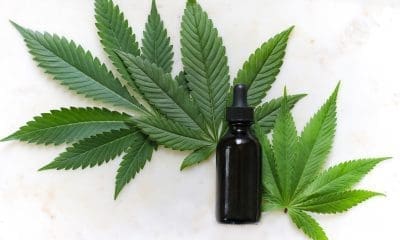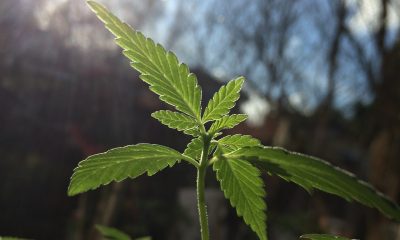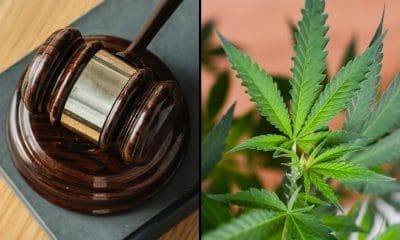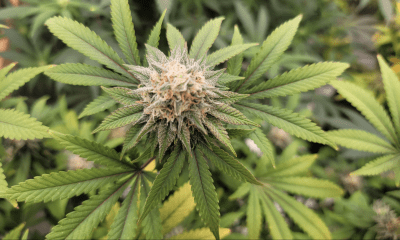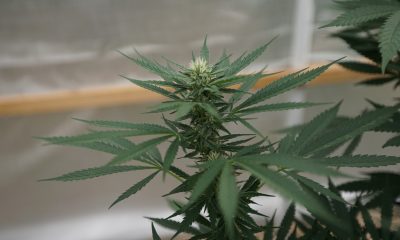Politics
Lawmakers Press VA About Denying Veterans Home Loans Over Marijuana Industry Work
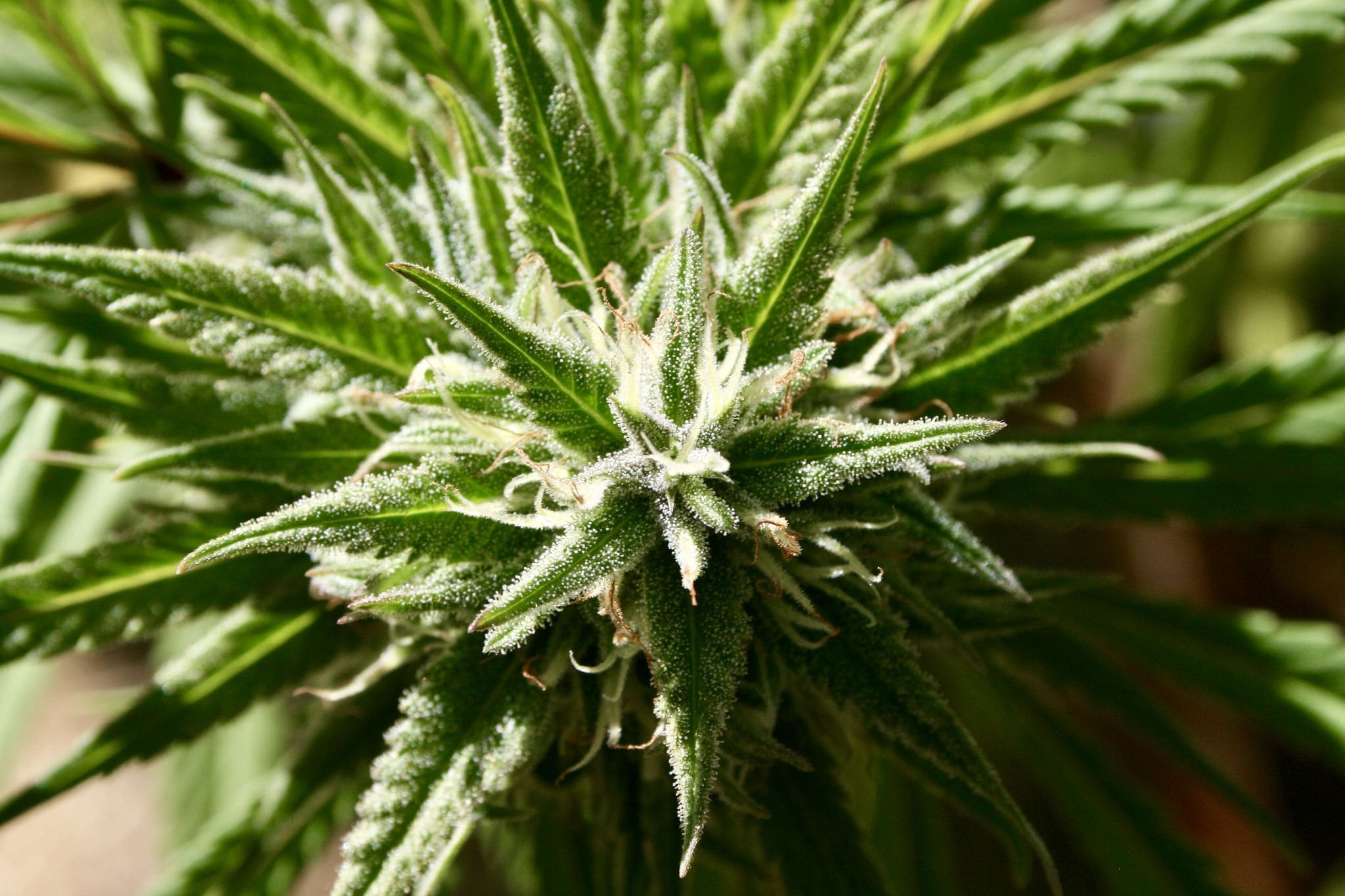
The denial of home loans by the U.S. Department of Veterans Affairs (VA) to military veterans because of work in the state-legal marijuana industry is prompting congressional action.
On Thursday, the House Appropriations Committee included language in a report attached to a 2020 VA funding bill demanding clarification on the issue:
“Home Loan Income Verification.—The Committee is aware of the Department’s denial of home loan guarantees to Veterans solely on the basis of the Veteran’s documented income being derived from state-legalized cannabis activities. The Committee is concerned that the Department has never publicly stated its position on this matter, hindering Veterans’ ability to fully understand and consider how employment decisions could affect future eligibility for earned benefits. The Committee therefore directs VA to publicly clarify its position on this matter no later than 180 days after the enactment of this Act.”
Separately, Reps. Katherine Clark (D-MA) and Julia Brownley (D-CA), the chair of the House Veterans’ Affairs Subcommittee on Health, are also currently circulating a congressional sign-on letter to VA about the issue.
“Recently, a veteran reported that his VA home loan guarantee application was denied based on his employment in a state-legal cannabis industry. The VA’s response indicated that the Department considered the Veteran’s source of income not to be ‘stable and reliable’ enough for the purpose of mortgage applications,” the lawmakers wrote in a cover message seeking signatures from other members of Congress for the VA letter.
“Because the VA believes that this income can be forfeited or seized under federal law, they won’t deem it suitable for a VA loan,” Clark and Brownley told their colleagues in the note, which was obtained by Marijuana Moment. “The VA also explained that if VA employees were to accept this income for the purpose of a loan application, they could technically be prosecuted by DOJ for money laundering.”
The draft letter to VA Secretary Robert Wilkie, like the appropriations bill report language, presses VA to clarify its position on the issue.
“A vast majority of U.S. states have now legalized medicinal and/or recreational cannabis in some form, giving rise to a state-legal industry that generates up to $11 billion per year in sales, creates over $1 billion in state-collected excise tax revenues, and supports the livelihood of over 211,000 Americans,” the letter to the secretary says. “A substantial number of veterans earn their livelihoods in this industry, and in coming years, that number is likely to further rise.”
“The VA must acknowledge this reality and ensure veterans who work in this sector are able to clearly understand and can equitably access the benefits they’ve earned.”
“The ambiguity under which the cannabis industry operates is unique, and we fully understand the VA’s resulting aversion to legal and financial risk,” the draft letter to Wilkie states. “Denying veterans the benefits they’ve earned, however, is contrary to the intent Congress separately demonstrated in its creation of VA benefit programs.”
While VA has provided guidance on certain related matters such as a clarification that veterans will not lose their VA benefits just for using cannabis and specifying that the department’s physicians can discuss marijuana usage with patients but not issue formal recommendation for medical cannabis, the department hasn’t put anything in writing concerning housing loan qualifications for veterans who work in the marijuana market, at least not publicly.
“Yet, the VA has not issued any policies or guidance on this topic, leaving veterans with no way to clearly and readily understand whether their choice of legal employment in this industry could result in the denial of benefits they’ve earned,” the letter says.
“We ask that you reply in the next 30 days detailing the Department’s position on loan guarantees, and that to the extent practicable, you also include information about whether a veteran’s eligibility for any other specific VA benefit is jeopardized solely on the basis of their employment in a legal cannabis industry in a given state. We also request that your reply include an assurance that you will begin the process of issuing guidance to publicly clarify the VA’s position on this matter.”
Separately, the House Appropriations Committee report attached to the VA funding bill also includes a section demanding VA explain its efforts to conduct research on marijuana’s therapeutic benefits for veterans:
“Cannabis Research.—The Committee recognizes that continued focus on the discovery of treatment alternatives for Veterans diagnosed with various conditions, such as chronic pain and PTSD, is essential to reducing the number of Veteran suicides. For this reason, the Energy and Water, Legislative Branch, and Military Construction and Veterans Affairs Appropriations Act, 2019 (P.L. 115– 244) urged VA to utilize funds to prioritize investments in research on the efficacy and safety of cannabis usage among the Veteran population for medicinal purposes and submit a report to the Committee no later than 180 days after enactment of that Act. The report has yet to be submitted to the Committee, therefore the Committee directs VA to provide a status update of this outstanding report no later than 15 days after the report is filed.”
Similar language was included in a report from the same committee last year, but VA apparently has not complied with the prior request to issue a report to Congress on the matter.
Veterans and cannabis issues have been front and center in the 116th Congress, with three pieces of related legislation having been discussed at a House veterans subcommittee hearing in April. Two of those bills were set to get a full committee vote on Wednesday, but they were pulled from the agenda after the chairman decided to instead hold a yet-to-be-scheduled hearing focused specifically on the marijuana proposals.
Trump Administration Opposes Bills On Medical Marijuana For Military Veterans
Photo courtesy of Brian Shamblen.




